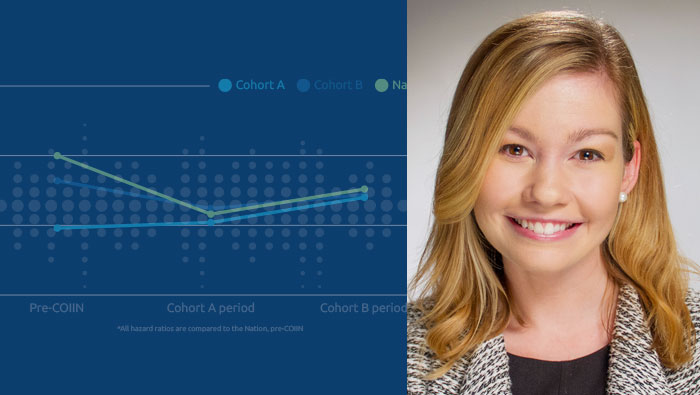With nearly 92,000 people currently waiting for a lifesaving kidney, finding new approaches to increasing kidney utilization is crucial to increasing transplants.
United Network for Organ Sharing works together with the donation and transplant community to find ways to improve the national transplant system, including increasing kidney utilization. Together we are making a difference: In 2019 we achieved another record-setting year of lifesaving transplants, but there is more work to be done. A UNOS-led three-year project, the Collaborative Innovation and Improvement Network (COIIN), aimed to increase utilization of hard-to-place kidneys, and research shows that the collaborative methodology has benefits.
“There is so much potential to increase utilization of moderate-to-high KDPI kidneys, and the COIIN results are exciting because they suggest that more of these kidneys can be used in appropriately selected recipients without increased risk of graft failure,” says UNOS research analyst Julia Foutz, who presented research on the topic at the 2020 American Transplant Congress.
The results Foutz presented suggest that in the context of collaborative improvement efforts, moderate-to-high KDPI kidneys can be transplanted without increasing the risk of adverse graft survival outcomes. “By working with the community, we are continuously improving the system for everyone in order to reduce the organ shortage and save more lives,” she said.
Read more about how collaborative improvement has the potential to increase transplant.

